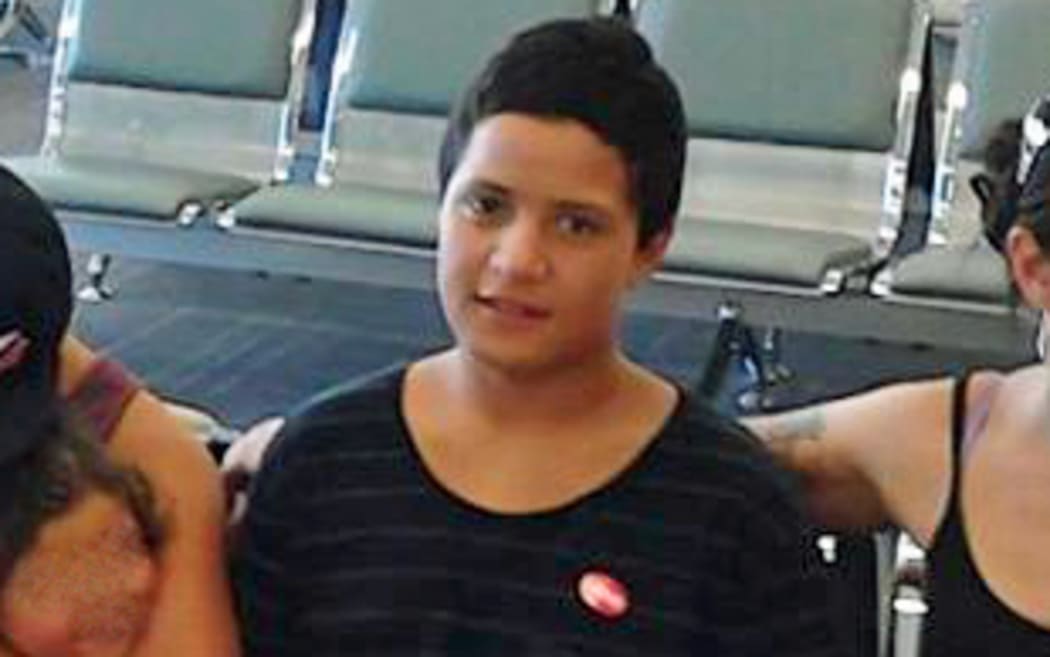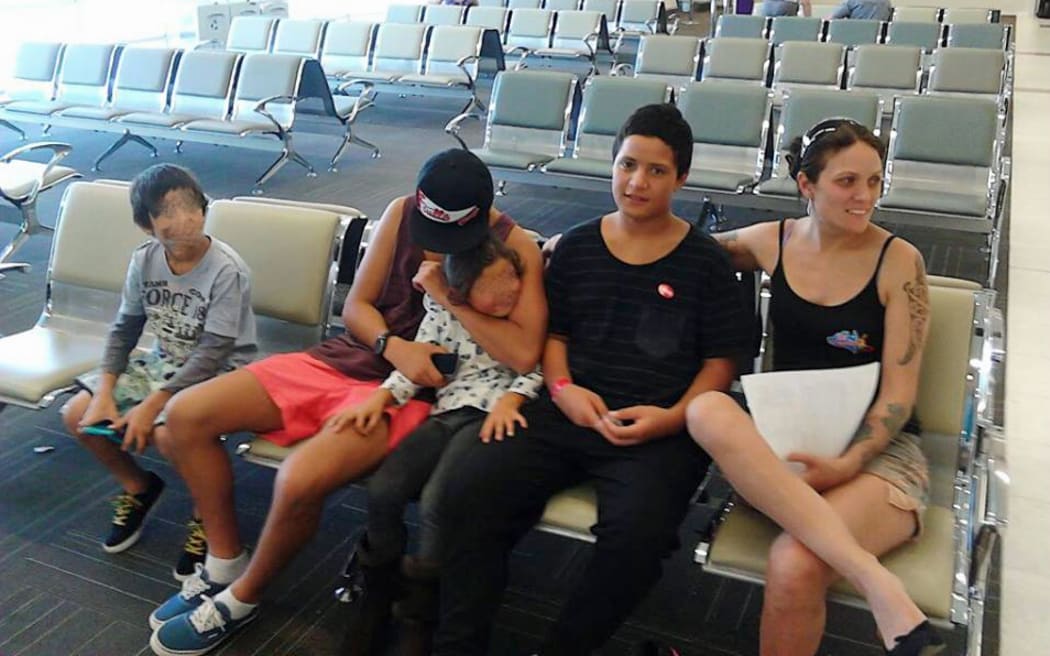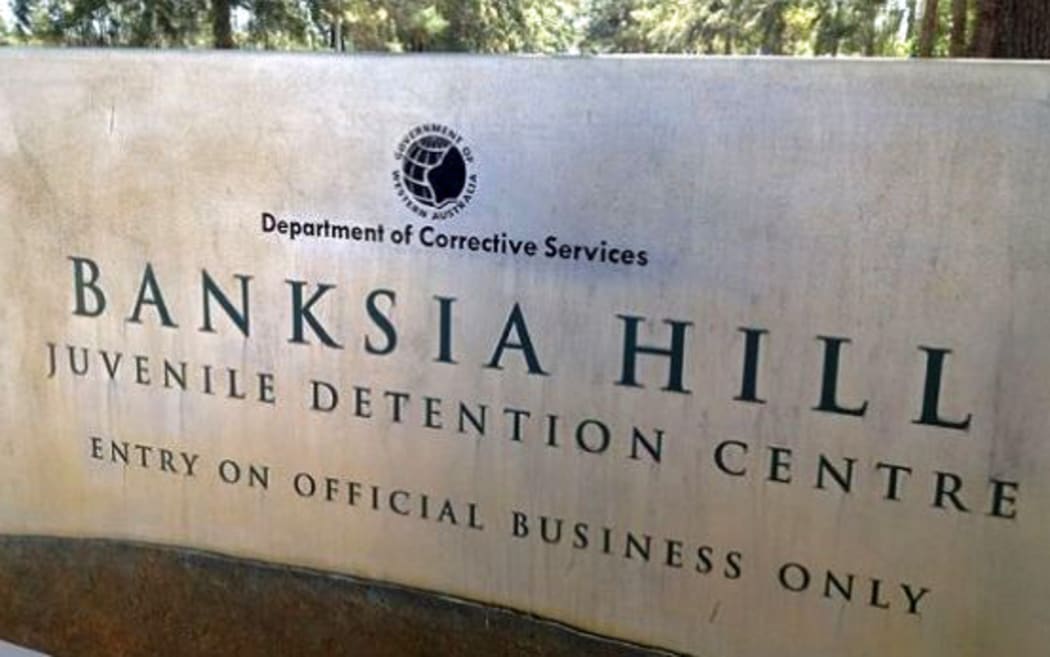Waiting for answers.

A younger Jason Rewiti. Photo: Supplied
A Māori teenager who has allegedly been kept in isolation in an Australian youth detention centre for 339 days wants desperately to be transferred to adult prison.
With the exception of brief phone and video calls, Jason Rewiti, 18, has been unable to interact with anyone except his guards at Perth’s Banksia Hill juvenile detention centre for almost a year, his mother says.
She said Jason’s experiences had “destroyed him”. She has now made new allegations of mistreatment against her son.
“I am so afraid there will be no remnant of that cheeky spark left. I’m afraid there’ll be nothing left of him,” said Kylee Douglas.
“I do blame Banksia Hill. There’s been no need for 339 days in isolation.”
Jason moved to Australia from the Bay of Plenty nine years ago to live with his biological father. Two years later, Kylee and her other children followed.
When he was 15, Jason was first sent to a juvenile detention centre for his part in the robbery of a suburban home in Perth. He was sentenced to 30 months.
Within a few months of his release, he breached his parole conditions and was sent to Banksia Hill.
In early May last year, he took part in a destructive riot at the centre. Officers eventually brought order using stun grenades and pepper spray.
Since then, Kylee said her son has been kept in the centre’s isolation unit, formally known as the Intensive Support Unit (ISU). She knows exactly how many days - 339 and counting.
If Jason hadn’t taken part in the riot, he would have been released by now. He is awaiting trial for his actions during the riot.
Kylee said he’s the only rioter left in the isolation unit.
She said her son has tried to self harm, or threatened to self harm, at least 100 times during that duration. There are scars up his arm that weren’t there before.
“Jason has always been remorseful for what he’s done and never self-pitying. He understands he has to be punished, and for the riot as well. We’re just asking - why 339 days?” she said.
“He’d rather be in adult prison than here.”
She said during the 339 days, Jason has been denied access to the centre’s oval for exercise, or the educational classes other boys are required to attend.

Kylee Douglas (r) and her family. Photo: Supplied
Banksia Hill denies any mistreatment, saying no boys have been isolated without access to education or healthcare.
Western Australia’s Department of Justice has said it is unable to comment on individual cases, but earlier this year told The Guardian the isolation unit was a “safe environment to case-manage highly complex young people”.
The department said those at risk of self-harm may be sent to the unit, which has “significant oversight”.
“They are provided with programs, education and daily sports and games programs with other young people and staff.”
The department has told The Wireless it still stands by these comments, and added "young people in ISU receive more support and attention than other units".
"Every effort is made to reintegrate individuals back into other accommodation, but if they continue to pose a threat to others or themselves they will be accommodated in the ISU so they can continue to have more resources and staff dedicated to their care," the department said.
"All Banksia Hill accommodation units are separated from others for security reasons. The ISU has the same accommodation and layout as the other units, but also has more facilities for monitoring highly complex young people."
Jason’s case has drawn the attention of Amnesty International, which has warned Banksia Hill it could be breaching international law by enforcing extended periods of solitary confinement, and has called for the closure of the isolation unit.
Amnesty has described the alleged mistreatment as an “avalanche of horrors”.
The Guardian, which did not name Jason as he was 17 at the time of publication, said there were 272 incidents of self harm at Banksia Hill in a 15 month period from the beginning of 2016.
The Western Australian Government has ordered the inspector of custodial services to investigate Banksia Hill, and the treatment of Jason and another boy, who is also alleged to have been kept in isolation for hundreds of days.
Last year, the inspector released a damning report on Banksia Hill that found children were being denied hot meals and kept locked in their cells for extended periods. The report found “chemical agent and distraction devices” were being used to subdue children.
Security footage of alleged incidents had been taped over.
Banksia Hill has said it has made significant improvements since the report’s release.
Last month, Newshub’s The Hui reported on Jason’s case.

Photo: Supplied
Kylee told The Wireless the night the boys were rounded up after the riot, they were made to lie flat on concrete and guns were held to their heads. She said one boy urinated himself.
“I understand they had to be brought under control, but they didn’t know what the guns were loaded with.”
She becomes emotional when describing what Jason has told her about life in the isolation unit.
“I wouldn’t have time to tell you everything, but one of the worst things Jason told me was that he has been made to get down on all fours like a dog just to get his food,” she said.
“If he didn’t do that, he went hungry.”
She said Jason had a significant gash on his leg immediately following the riot.
“He pressed on the intercom button so many times - he can’t even remember how many - and no nurse came to see him for almost a month, when they finally gave him some antibiotics because it looked infected,” she said.
“Jason’s got a huge scar from that now.”
She said when boys are considered at risk of self harming, they’re put into observation cells they dub “fishbowls”.
“They have to put on a paper gown, and if they refuse to remove their clothing, they are held up against a wall and their clothes are cut off them until they’re naked.”
She said Jason has told her guards have covered his window so he’s unable to see outside.
When they are allowed outside of their 5m x 5m cells in the unit, they go to “the cage”.
“Jason’s told me there’s just a hand-size stress ball in there and a deflated basketball. Boys are allowed to spend two hours of recreation there per day. They aren’t allowed to interact with each other at any time.”
Kylee said Jason, like the other boys who spend time in the isolation unit, “don’t like to talk too much about it”.
“There is a culture of just sucking it up, and not being a crybaby about it on the outside. That’s what he’s done. He is very staunch and says, ‘that’s just what happens’, because that’s all he knows.”
Jason’s case has also drawn the attention of the New Zealand group, People Against Prisons Aotearoa (PAPA), which has been campaigning against solitary confinement.
“We’re not trying to minimise the social harm Jason caused, we’re saying that putting someone into a nightmare situation that will only cause immense psychological harm will in no way prevent them from causing that social harm again,” said PAPA spokesperson, Emilie Rākete.
“This isn’t going to help Jason become a safe, functioning member of society. It just makes things worse. It’s unconscionable and horrifying, and it goes on all the time.”
She said Jason’s treatment can be in part attributed to the “tough on crime posturing” that has saturated New Zealand and Australian politics.
“The more brutal you are towards people, the more likely it is they will go on to harm others. We can’t just throw people into a box and try to forget about them until we have to send them back into society.”
Meanwhile, Jason and Kylee Douglas are awaiting the outcome of his requested transfer to an adult prison, for a hearing date relating to his involvement in last year’s riot, and for the inspector’s report, which is expected in late May, early June.


